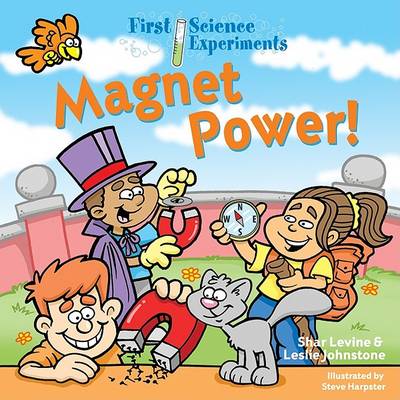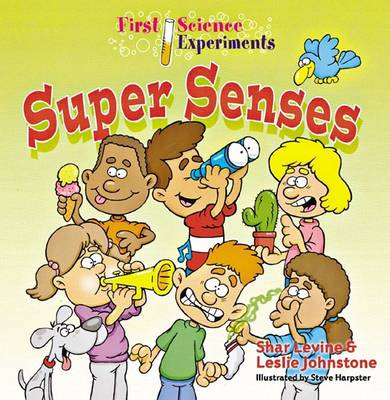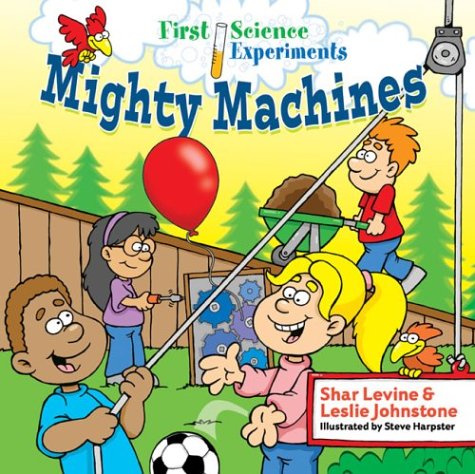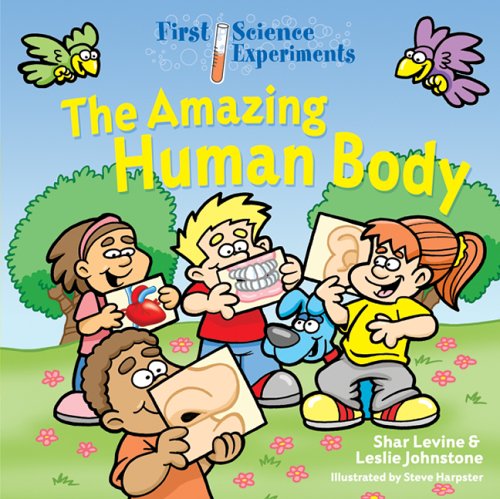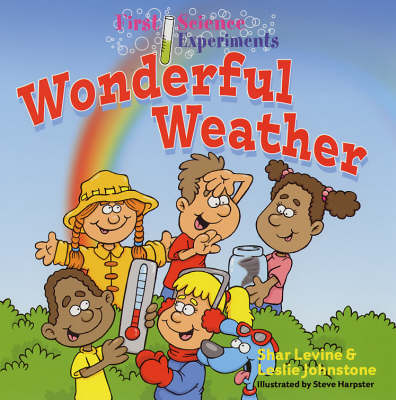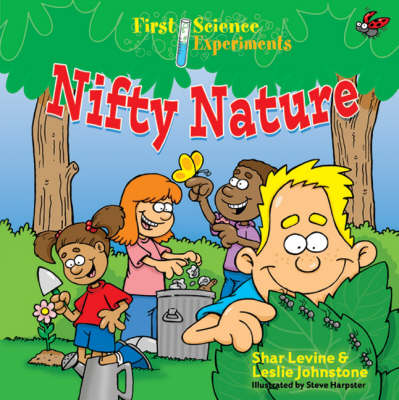First Science Experiments S.
6 total works
Magnets irresistibly draw kids to science - turning the learning process into a magical experience. This entertaining collection of experiments helps parents and teachers make the most of that natural, youthful curiosity. These activities answer all the most basic questions in a hands-on way, always with an eye to safety: What do the "N" and the "S" on a magnet mean? What can a magnet pick up - and can I make something magnetic? Where is the largest magnet in the world? There's even a way to make a magnet float in the air and a great "art project" using a magnet to decorate a silly drawing! Give kids a head start on science with simple experiments and activities that have been designed specifically for young scientists and require only minimal adult supervision.
Even young children can understand the science behind sight, sound, smell, touch and taste, thanks to these simple, safe and easy experiments. With a drinking glass, water, plastic shrinkwrap, sellotape, a spoon, a small toy and an adult's help, create an optical device that magnifies objects! Find out why salt is salty and sugar sweet or why feathers tickle your skin: Sight - Why do some people wear glasses? What is a blind spot? Can my eyes play tricks on me? Hearing - Can my ears fool me too? Why do I have two ears? Why shouldn't I poke things in my ears? Touch - Why do things feel hot and cold at the same time? Can I tell what things are without seeing them? How do blind people read? Smell - Can I tell what something is just by smelling it? How do scratch-and-sniff stickers work? How good is my nose at smelling things? Taste - Where are my taste buds? Why don't things taste the same when I have a cold? Can I taste colour? This book provides fun science activities for younger children, aged 5 to 8 years old. It is illustrated in full colour throughout with wonderful colour cartoons.
Give kids a head start on science with simple experiments and activities that have been designed specifically for young scientists and require only minimal adult supervision. Ages 8+.
Why is my hair straight when my friend's is curly, does my tummy growl when I am hungry, do things start to look all fuzzy when they get close to my eyes? Nothing fascinates kids more than their own bodies and how they work. The youngest budding scientists can find out some of the head-to-toe basics through these extremely simple activities. Using tea bags, children can test their sense of smell - and find out why they stop noticing even the most delicious aromas after a little while. With a pillow, a helpful adult, and a supported headstand, they'll discover why they become dizzy when they spin. Who knew learning could be such fun?
Weather happens every day, but it's not always the same. Finding out why is lots of fun! Give your kids a head start in science with these simple experiments and activities that have been designed specifically for very young scientists and require only minimal adult supervision. Air and Temperature - What is temperature? Is hot air the same as cold air? Why does my shirt stick to me on hot days? Water - Why is the grass wet when it didn't rain last night? Where do clouds come from? Why is the sky blue? Ice and Snow - Who made those ice pictures on my window? What is hail? Why is some snow "fluffy" and some "soggy"? Wind - Where does the wind come from? Which way is the wind blowing? What makes tornado's go around? Thunder and Lightning - What makes lightning? What makes thunder? Where do rainbows come from? This book provides fun science activities for younger children, aged 5 to 8 years old. It is illustrated in full colour throughout with wonderful colour cartoons.
By looking at all the wonderful elements of nature, kids will begin to discover science principles in everyday life. As they carry out experiments with handy items, they'll uncover the reasons why leaves change colour in autumn, why ants march in a line and lots of life's other fascinating mysteries. Young scientists will also be able to see what happens when oil gets in water, what's inside a rock, how to help the environment and much more.
